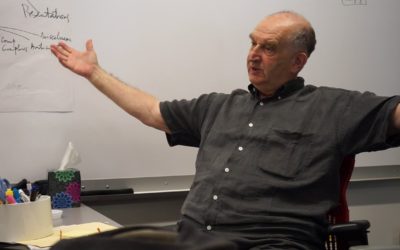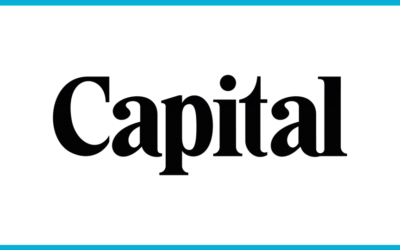Use language strategically and your
business strategy will succeed!
The most powerful tool you use as a business leader is language. From plan through deal to feedback, your actions are shaped by it. Use language strategically, and prospective partners will be ready to engage while talented staff will perform much better. My approach when supporting an executive is to see beyond the big words at the core of his or her operation – success or failure is often a matter of seemingly innocuous words like ‘we’ or ‘but.’ My promise: managing both the technicalities and the social dynamics of language can be as liberating as it is effective!
Am meisten bewegen Sie mit der Sprache: Vom Plan über den Deal bis zum Feedback – Sie gestalten die Welt sprachlich. Der strategische Einsatz von Sprache bringt Sie mit Ihrer Zielgruppe zusammen, und er motiviert Ihre besten Fachkräfte. In meiner Arbeit für Entscheider schaue ich nicht nur auf die großen Worte – denn oft hängen Erfolg oder Misserfolg an unscheinbaren Wörtern wie „wir“ und „aber“. Meine Erfahrung zeigt: Wer die Technik der Sprache ebenso aufmerksam gestaltet wie ihre soziale Dynamik, setzt ungeahnte Energien frei!
PERSPECTIVES
„We don’t need more data to make better decisions“
Stop worrying about data, start changing the world, says Mihai Nadin in an exclusive interview. His view: we don’t need more data!
Mythos Nachhaltigkeit? Interview zur Rolle von Unternehmern
Was erzählen meine Kleidungsstücke? Das fragt sich die Autorin Imke Müller-Hellmann. Sie war für Leute machen Kleider weltweit unterwegs, um die Menschen zu treffen, die ihre Kleidung hergestellt haben. Ich fragte sie nach den Themen Nachhaltigkeit und Konsumverhalten...
Krise der Marktforschung: Wozu eigentlich Daten?
Seit den Spiegel-Enthüllungen gibt es eine Krise der Marktforschung. Wir müssen jetzt ehrlicher fragen, wofür wir Daten brauchen.
CASES
Strengthening communities through changes in language
“What is trust, and should we talk about it?”
A financial services provider asked me how they could improve their client-facing communications. My systematic review of research into trust helped them decide which one of their campaign ideas was best. (Short answer to the above questions: It’s a practice, and, no.)
“What’s the link between innovation and personal relationships?”
This was a fascinating project in which my client had a very specific problem, but chose to ask me a rather broad question. Much of my work was finding out more about pain points in the company, which were based on wide-spread misunderstandings of terms in their guidance documents.
“Who’s an expert on health?”
Research for a large public institution revealed that very often in debates around health the issue is not information as such but the status accorded to those who may possess it. Discourse analysis informed by theories of knowledge provided a solid basis for new forms of stakeholder engagement.



